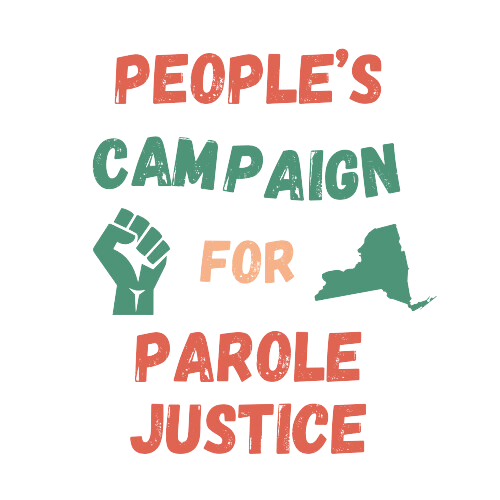People's Campaign for Parole Justice Organizational Sign on Letter
Senate Majority Leader Andrea Stewart-Cousins
28 Wells Avenue, Building #3
Yonkers, NY 10701
Assembly Speaker Carl Heastie
1446 East Gun Hill Road
Bronx, NY 10469
Dear Majority Leader Stewart-Cousins and Speaker Heastie,
For years, New York State has followed a paradigm of punishment created by the policies of mass incarceration and systemic racism. Longer prison sentences and fewer opportunities for parole release mean that incarcerated people are serving more time in prison than ever before, rapidly aging, and languishing in prison despite their efforts at rehabilitation and demonstrated low risk to public safety. New York's punishment paradigm also means that a disproportionate share of that population are people of color, who are denied parole release at rates that outstrip their white counterparts.
New York has the second highest number of people in prison serving a parole-eligible life sentence in the country—roughly 9,500 people—and is one of only a handful of states with more than 8,000 incarcerated older adults. Such staggering numbers come with great human costs for incarcerated people, their families and communities, and growing financial costs for all New Yorkers. While the average cost to incarcerate a person in the New York State prison system is roughly $60,000 per year, it costs New Yorkers between $100,000 and $240,000 annually to incarcerate an older person.
To remedy these urgent problems, the legislature must advance two key amendments to the executive law governing the State Board of Parole to ensure that people in prison are given a fair consideration for parole release based on who they are today and their current risk to the public:
Fair and Timely Parole (S159-Salazar/A127-Weprin): This bill would ensure that the parole release process in New York State is based on rehabilitation and someone’s current risk to public safety as opposed to punishment and revenge. Background: The New York State Board of Parole denies release to the majority of parole-eligible people. Their decisions are often based on one unchangeable factor—the nature of the crime—despite a person’s accomplishments in prison, reentry plans and low risk of recidivism. As a result, people serve years and decades on top of their minimum sentences, languishing in prison well into their elderly years.
Elder Parole (A.514-Davila/S.454-Hoylman): This bill would allow a consideration of parole release to older people aged 55 and older who have already served 15 consecutive years in prison. Background: Because of New York’s brutal sentencing laws, many aging people in prison are not yet eligible for parole or have sentences that prevent them from seeing the Board of Parole before they die in prison, regardless of their personal transformation while incarcerated. This bill would allow elders in prison to appear for an individualized assessment of their case and parole consideration, regardless of their original sentence. Overwhelming evidence indicates that incarcerated people undergo meaningful and transformative change within 15 years of incarceration. Furthermore, older people pose little to no risk to public safety.
Collectively, these two measures embody key values of redemption, safety, fairness, and mercy, and would bring justice and healing to countless people throughout New York State. They would ensure that no one is defined solely by the worst thing they have ever done, or condemned to die in prison because they were never given any opportunity for parole release. We urge the legislature to pass Fair and Timely Parole and Elder Parole immediately.
Sincerely,

